LED Floodlights
LED floodlights are versatile when it comes to where and how they can be installed as well as their usage. They're commonly used to light everything from building facades to billboards to sports fields. Two different types are available: symmetrical and asymmetrical. Symmetrical floodlights disperse their light evenly over a general area, while asymmetrical floodlights focus their beams more directly over a specific area. Thanks to LED technology, excellent energy-efficiency is assured too.
Filter inCategory
Too much choice?
Help me choose!
433-456 out of 732
results found
Filter
Sort by
LED floodlights are versatile when it comes to where and how they can be installed as well as their usage. They're commonly used to light everything from building facades to billboards to sports fields. Two different types are available: symmetrical and asymmetrical. Symmetrical floodlights disperse their light evenly over a general area, while asymmetrical floodlights focus their beams more directly over a specific area. Thanks to LED technology, excellent energy-efficiency is assured too.
Compare Products
(/)
You can have up to 5 products in the comparison list.
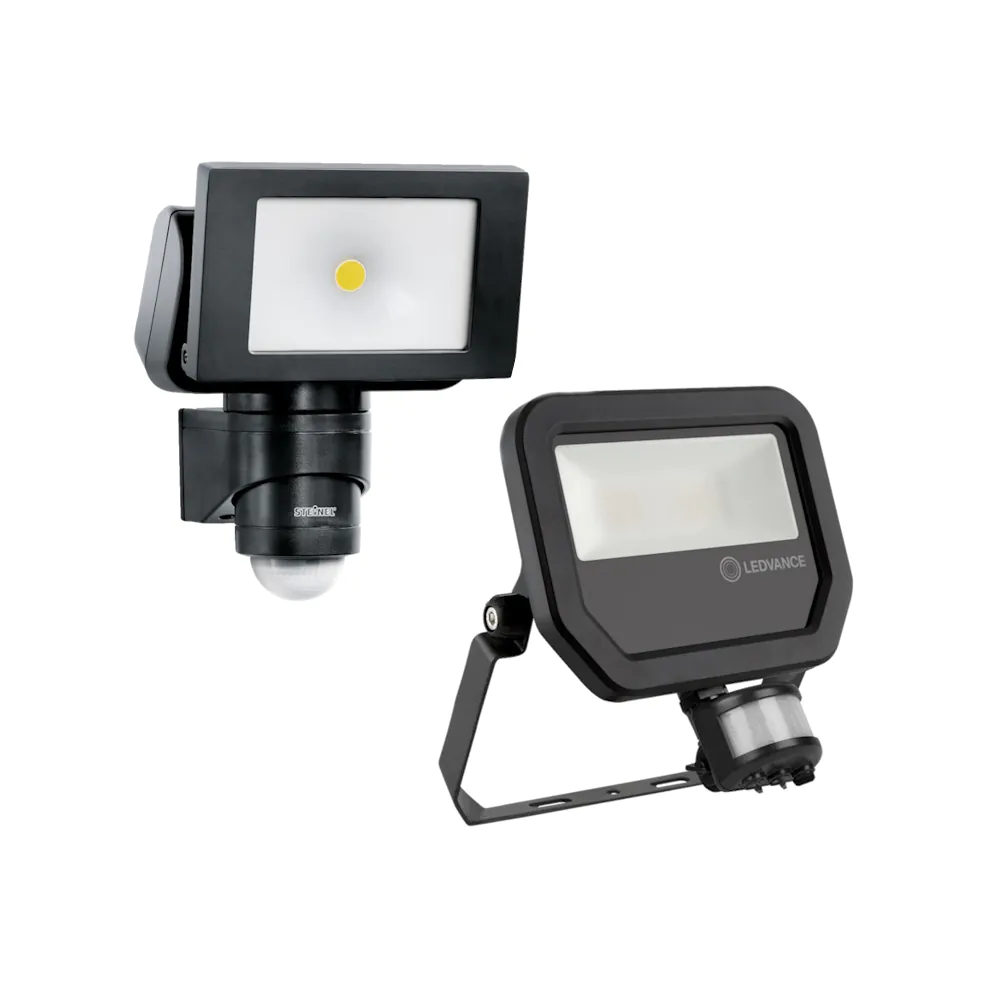
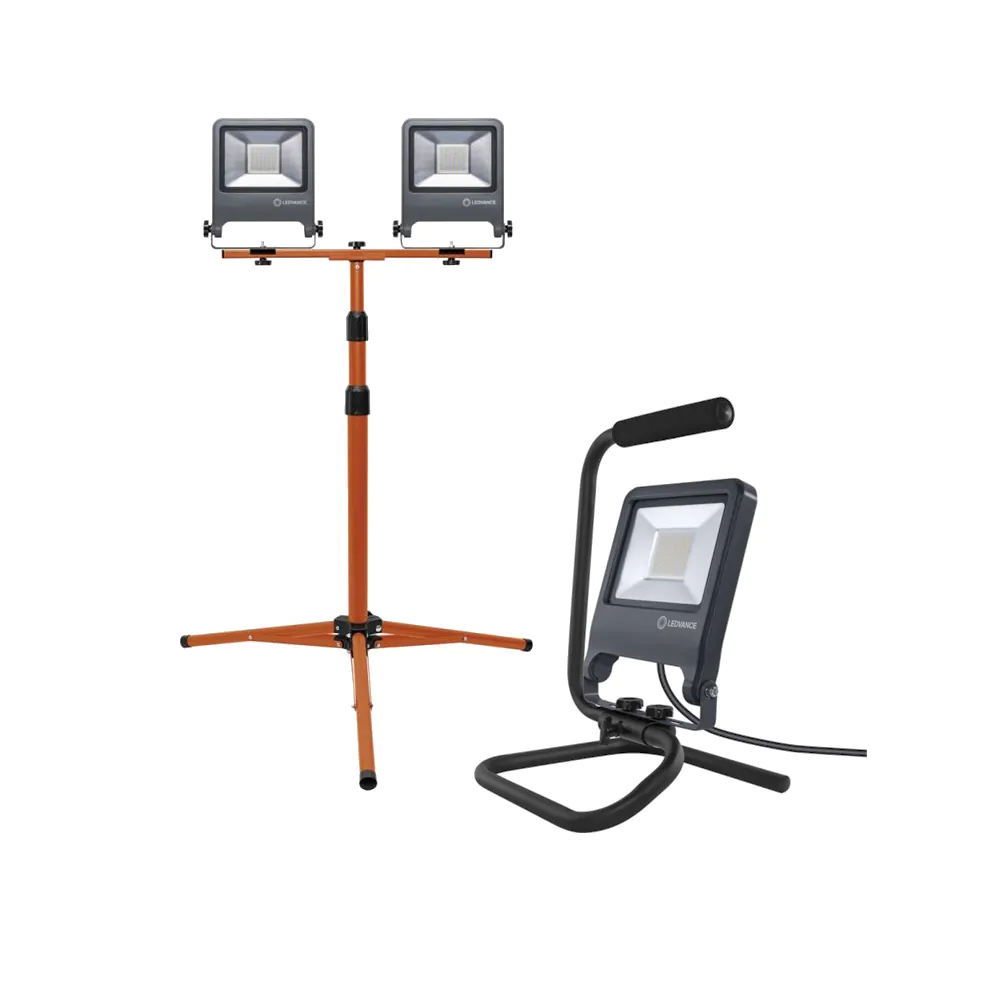
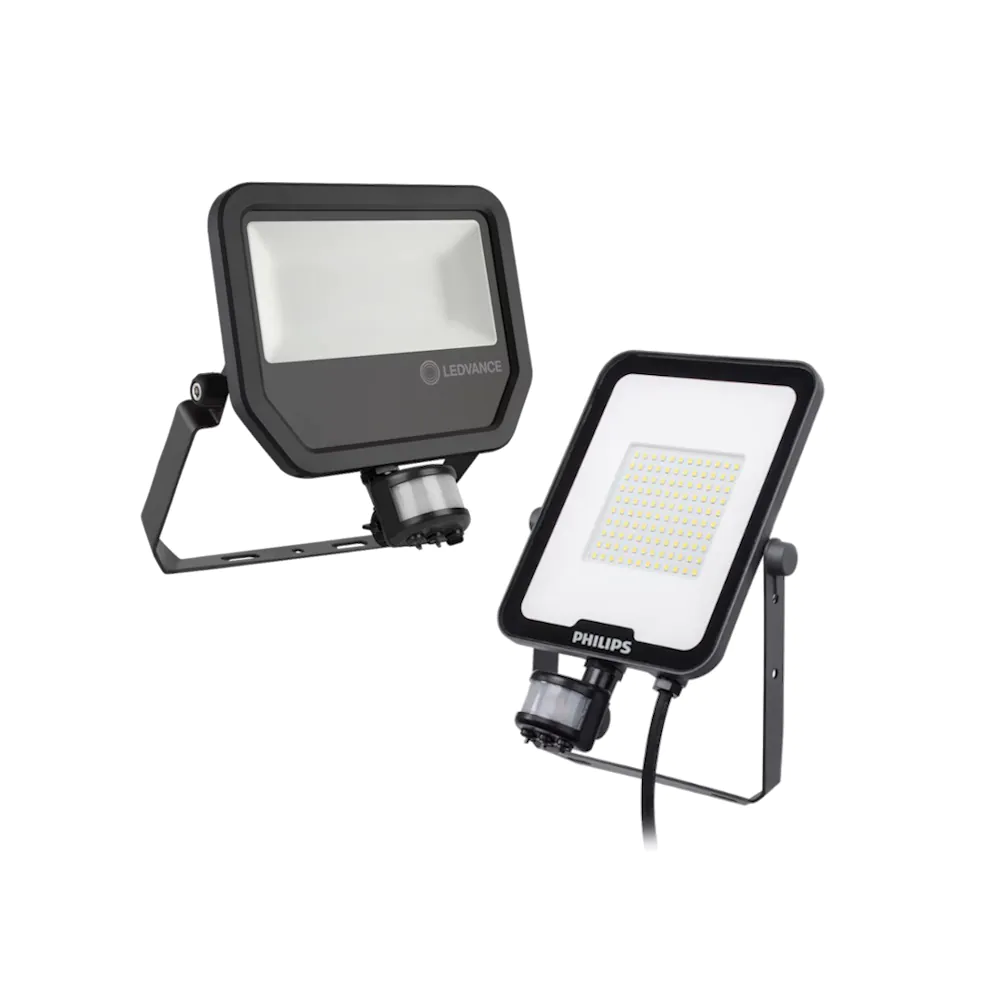
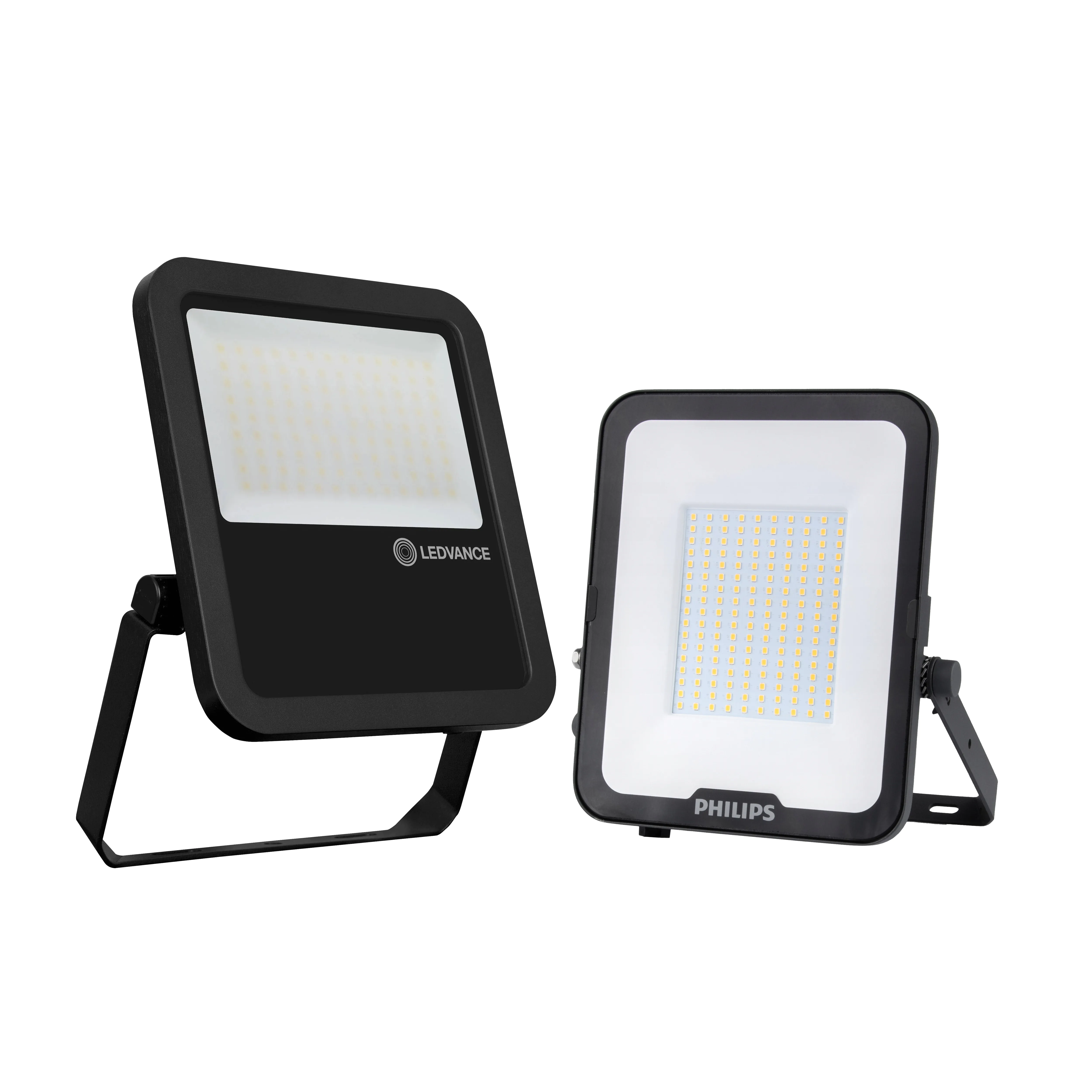
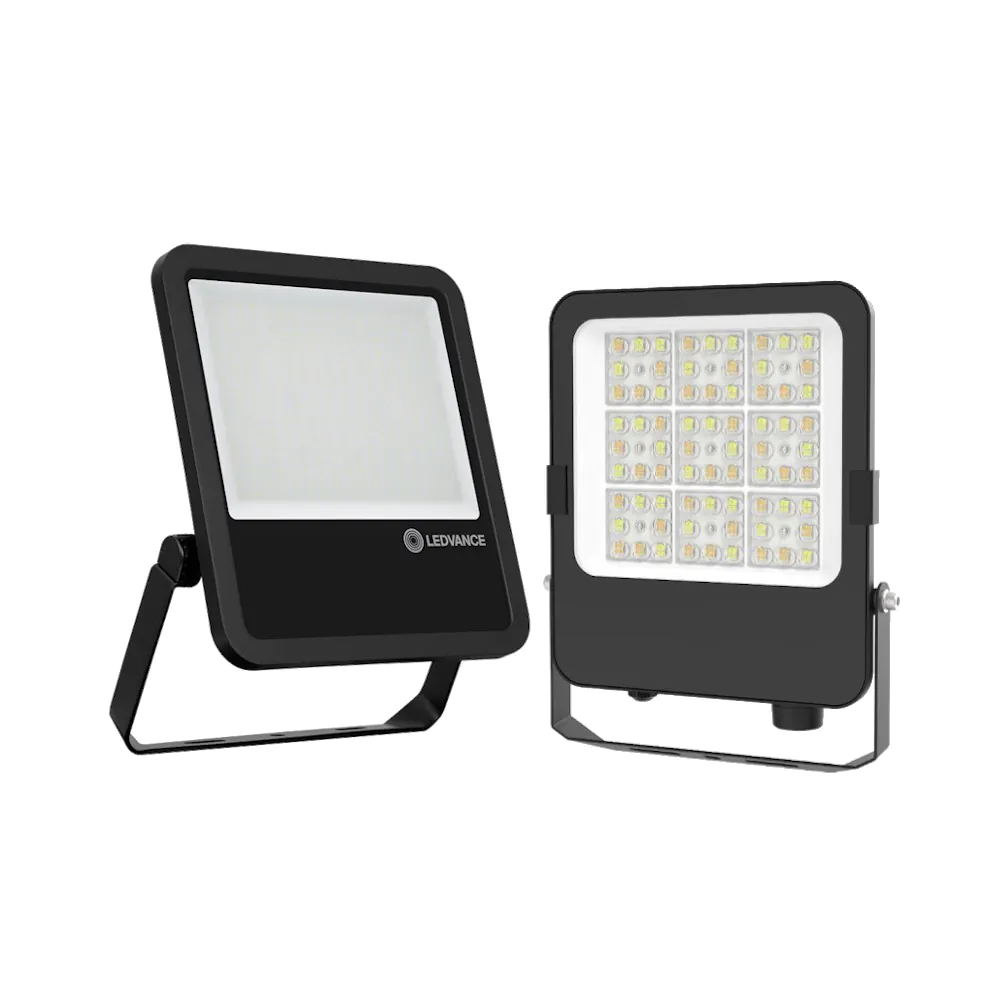
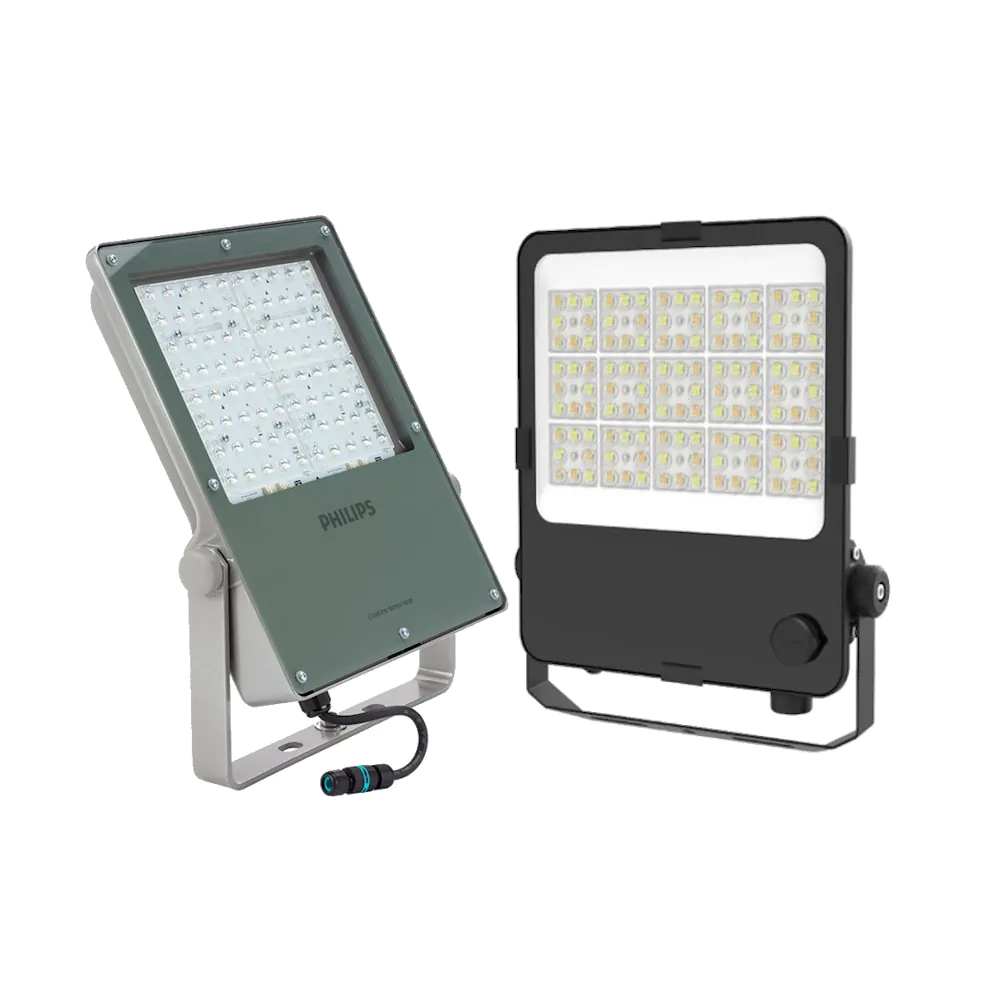
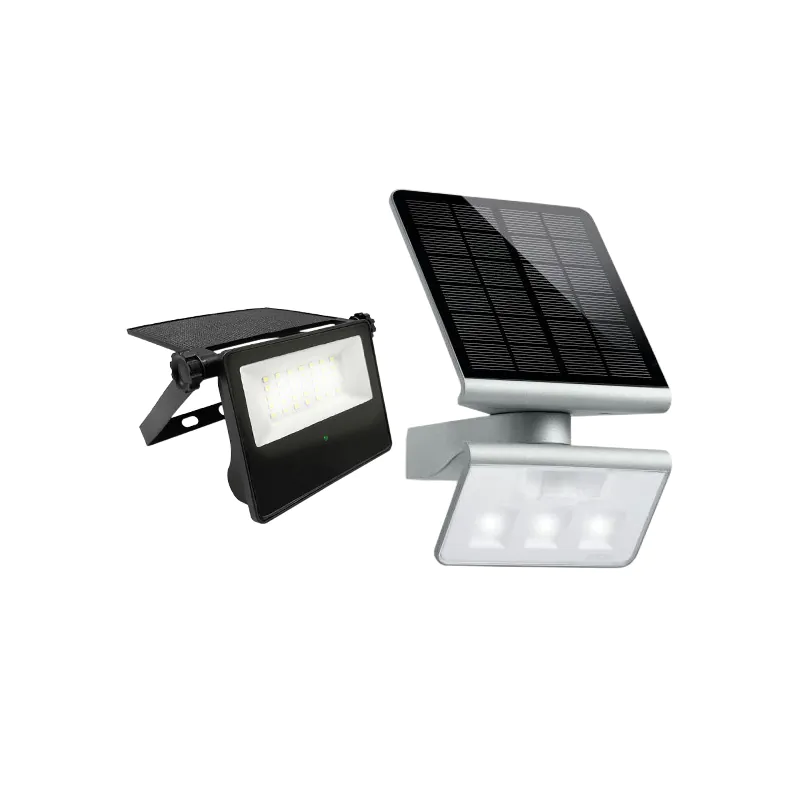
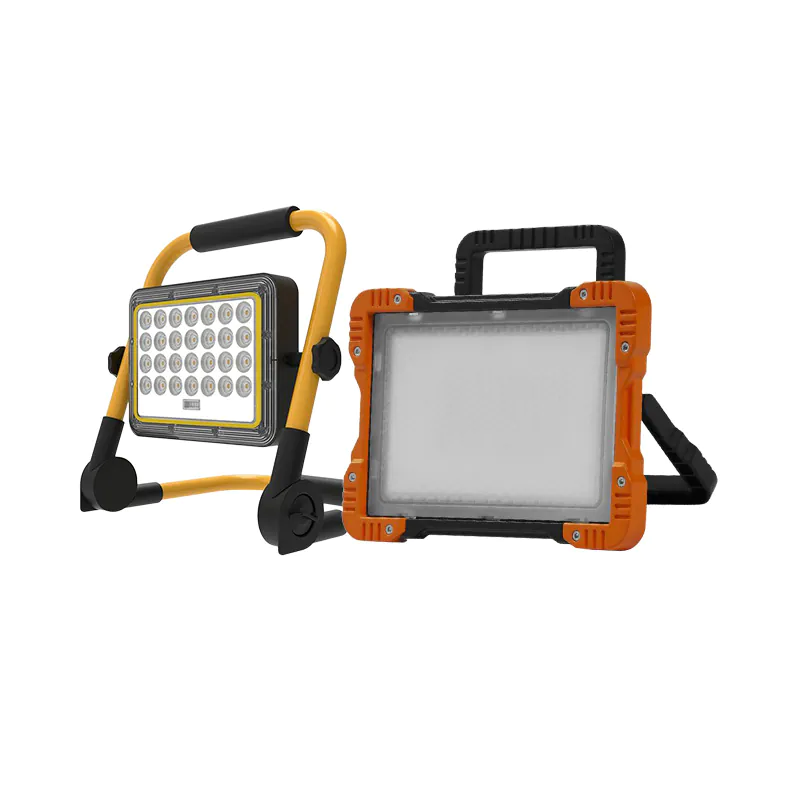
 The IP value indicates the degree of protection against the ingress of moisture and dust. The 1st digit (0 = not protected until 6 = completely dustproof) indicates the protection against dust. The 2nd digit (0 = not protected until 8 = protected against immersion) indicates the protection against water. Products with an IP44 rating are splashproof and products with an IP65 rating or higher are (completely) dustproof and waterproof.
The IP value indicates the degree of protection against the ingress of moisture and dust. The 1st digit (0 = not protected until 6 = completely dustproof) indicates the protection against dust. The 2nd digit (0 = not protected until 8 = protected against immersion) indicates the protection against water. Products with an IP44 rating are splashproof and products with an IP65 rating or higher are (completely) dustproof and waterproof. The impact protection value (IK) stands for impact resistance and protection against vandalism. This is expressed in combination with 2 digits (IK00 - IK10). Products with IK00 are not protected against resistance. Products with IK10 offer resistance to shocks of 20 Joule and are also vandal-proof.
The impact protection value (IK) stands for impact resistance and protection against vandalism. This is expressed in combination with 2 digits (IK00 - IK10). Products with IK00 are not protected against resistance. Products with IK10 offer resistance to shocks of 20 Joule and are also vandal-proof. The colour code is a combination of colour rendering (CRI) and light colour (Kelvin). The first number indicates the colour rendering (1 = very poor colour rendering, 9 = maximum colour fastness). The second and third number contains the light colour. Example: the colour code 830 consists of good colour rendering (8) and warm white light (3000K).
The colour code is a combination of colour rendering (CRI) and light colour (Kelvin). The first number indicates the colour rendering (1 = very poor colour rendering, 9 = maximum colour fastness). The second and third number contains the light colour. Example: the colour code 830 consists of good colour rendering (8) and warm white light (3000K).
 Every bulb or fixture has an energy efficiency class A to G. Energy label A is the most efficient and G the least. LED lighting is the most sustainable lighting technique. Even if a LED bulb is rated E or lower, they still save 70% of energy compared to conventional lighting with the same energy label. Why is it the same label then? To motivate LED brands to get even more durable.
Every bulb or fixture has an energy efficiency class A to G. Energy label A is the most efficient and G the least. LED lighting is the most sustainable lighting technique. Even if a LED bulb is rated E or lower, they still save 70% of energy compared to conventional lighting with the same energy label. Why is it the same label then? To motivate LED brands to get even more durable.























